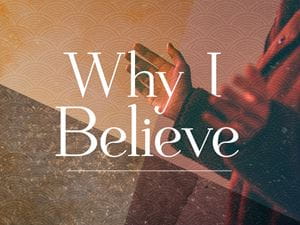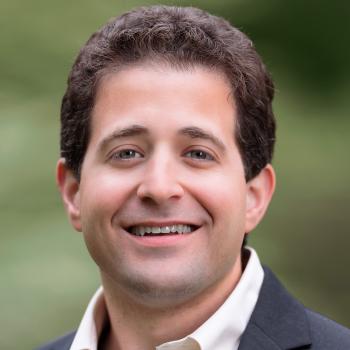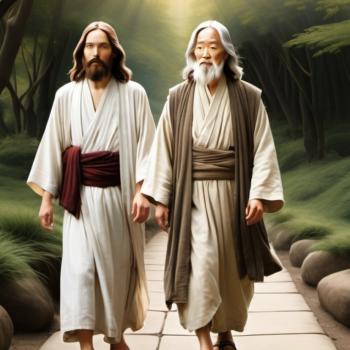
I am implicated in the Cross. Both in its horror and in its grace. This is the mystery of the Eucharist and this is why I believe. The Gospel brings good out of suffering; and Flannery O’Connor understood this better than anyone else I’ve read. Though I pierce His flesh with white nails at the Communion rail, the forgiveness of Christ is unswerving. Like the Jesus of Shusaku Endo’s novel Silence, my saviour says, ‘It was to be trampled on by men that I was born into this world. It was to share men’s pain that I carried my cross.’ No use trying never to do him harm. Even as I swallow him down to the fiery pit of my stomach like Jonah’s whale, he raises me to life as he descends.
“Matthew David, I baptise you in the name of the Father; and of the Son; and of the Holy Spirit.” A sprinkle of water to seal the deal and I’m part of the family. These, of course, were the words of my Christening. I was baptised in Harmony Hill Presbyterian Church as a toddler on 20th June 2004. (I was disarmingly cute in my Christening photo!) And I trace my Christian journey, as they call it, back to this event. I’m writing, and you’re currently reading, a piece about why I believe. But in asking myself the question, “Why do I believe?”, I might as well be saying, “Why do I eat?” or, “Why do I breathe?” Belief, to me, has been like the eighth sign of life ever since my baptism.
Personal faith is impossible without the communal faith of the Church. I believe because I’m part of a believing community. This may seem like a circular statement; it probably is. But that doesn’t make it any less true. There are personal relationships with Christ, of course. Although these all depend on our collective relationship to him, in the first instance. We are, for better and for worse, all born into an arbitrary set of circumstances. And the quickest way to find happiness is to honour the particular setting into which God has placed us; for me, that was the Church. On the other hand, the myth of the self-made man is the surest route into despair. The Prodigal Son’s folly, in that parable, was his betrayal of home and family to chase an identity generated from within.
More than a millennium before the European Enlightenment and the ostensible “triumph of reason,” then, the Prodigal Son was the quintessential man of modernity. He wanted to choose his own adventure, guided by the blinding light of his own understanding. And he turns his back on the Father to wander in the far country, whose basic attraction is that it’s not the life he didn’t choose for himself. (Yes, the double negative is deliberate.) We know how the story goes… throwing off the so-called shackles of inherited circumstances wasn’t all it was talked up to be. The more he tries to reach within himself and find some authentic spark, the more the Son discovers the sheer emptiness of an individual uprooted by choice from the land of his birth.
Identity is formed in community. This is because only God can create out of nothing. ‘It is not good that the man should be alone.’ We’re kidding ourselves if we think that the measure of someone’s character is their unbeholdeness to any group. What a thought! Without the knowledge of belonging in a Christian community, I fail to see where I for one would find an identity. Hence why my baptism is the crucial memory as I reflect on my life. And when I take the Eucharist, I affirm the fruition of this infant baptism through my participation, as an adult, in Christ. I do this alongside fellow members of Christ’s body; the Nicene Creed, after all is confessed in the plural, “We believe…”
And if Jesus Christ is the same forever and ever (Heb. 13:8), then the way he relates to people is constant in all times and in all places. Whether it’s the Centurion opening the side of our Lord with an iron spear, or today’s Christians tearing him with enamel spears in the Eucharist, the same forgiveness is extended. “Father forgive them, for they know not what they do.” Again, the plural is unmissable. So I return, if I may, to my introduction. We are implicated in the Cross, whether or not we know it. In its horror by default, and in its grace through faith. To know the plentiful redemption of Christ in fellowship with others, then. That is a faith worthy to believe in.
1/13/2022 6:55:44 PM





